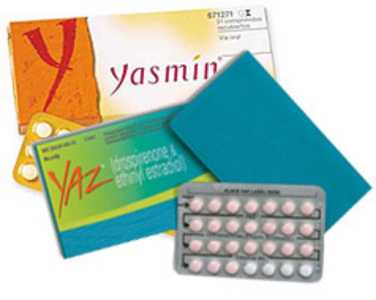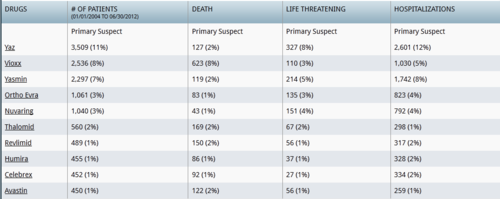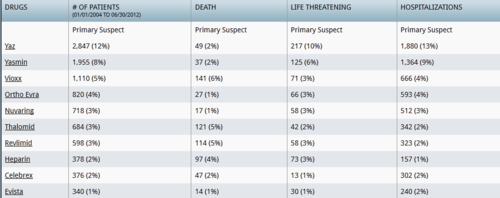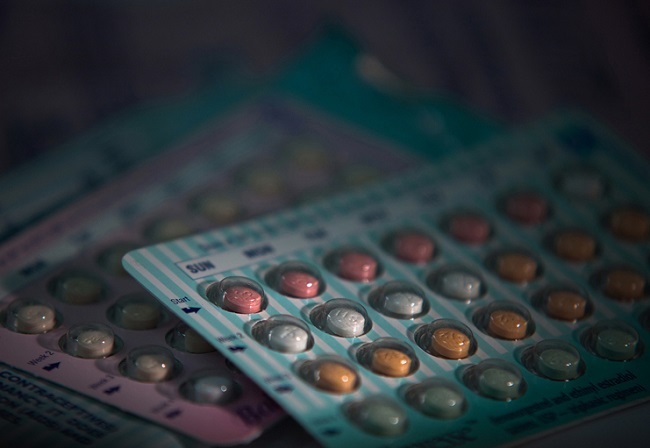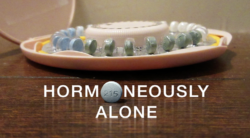The Pill is not just contraception anymore. It has become standard treatment for everything from acne to endometriosis to irregular periods. Yes, hormonal birth control can mask symptoms, but it cannot “regulate” hormones or periods in any meaningful way.
Hormonal birth control does not augment or regulate hormones. Instead, it suppresses ovarian function and shuts down hormones completely. It replaces endogenous hormones with synthetic steroids, and that’s not good enough for women’s health. Real hormones have many benefits for health that synthetic steroids simply cannot deliver.
Real Hormones versus Synthetic Hormones
Our real endogenous hormones are estradiol and progesterone. In contrast, synthetic steroids are ethinylestradiol, levonorgestrel, drospirenone, and many others. Real hormones and synthetic steroids are similar molecules, but they’re not identical and as a consequence, synthetic steroid have many different effects on the body, some of which we are only now beginning to understand.
For example, estradiol improves insulin sensitivity. Its synthetic counterpart ethinylestradiol impairs insulin sensitivity [1] (which is one of the ways the Pill causes weight gain). Progesterone is beneficial for hair, brain health, and bone density, but its synthetic analogues levonorgestrel, drospirenone, and medroxyprogesterone have quite different effects. They cause hair loss, depression [2], and reduced bone density. Moreover, the drospirenone progestin found in the Yaz, Yasmin and Ocella series of birth control pills, increases the risk of heart attack and stroke six fold. Its modified shape blocks what are called the mineralocorticoid receptors. These receptors are responsible for salt and water balance (think swelling) and blood pressure.
The only way that ethinylestradiol and progestins are similar to real hormones is that they induce a uterine bleed. They can even induce it monthly, but only if they’re dispensed that way.
Why Bleed?
Who really cares about a bleed for its own sake? If women can’t have real hormones, then why have a monthly bleed at all? It is merely to give the appearance of a period, and reassure women that they’ve had a period (when they haven’t). A bleed does prevent excess build-up of the uterine lining, but it does not have to be monthly. It can be quarterly or yearly or any time we withdraw from the synthetic steroids. Regardless of when we choose to bleed, the pill bleed is not the same as menstruation. Remember, the purpose of oral contraceptives is to block ovulation and prevent pregnancy. Without ovulation, our bodies do not produce endogenous hormones. Indeed, as any woman who has gone off of the pill after a long period of usage will tell you, it takes some time for ovulation and hormone production to begin again.
Normalizing our Periods: A Myth
Interestingly, the “regulation” of periods was the Pill’s earliest cover story. When the Pill was first developed, it could not be sold as contraception because contraception was not legal. Instead, the Pill was ostensibly prescribed to “normalize” periods. “Normalize” was a quaint euphemism which really just meant to be “not pregnant” (wink-wink).
Five decades later, and the Pill’s early cover story has now taken hold as a kind of weird counterfeit reality. Doctors readily prescribe oral contraceptives for all manner of female reproductive disorders, the most common of which is to ‘normalize’ the menstrual cycle. What they, and most women, fail to realize is that the monthly bleed precipitated by the withdrawal of synthetic steroids, is not a real period. It is simply a withdrawal bleed.
It’s time to end it. It’s time to bring back real periods.
There Is Another Way
As a naturopathic doctor working in women’s health for twenty years, I want my patients to have real periods. More precisely, I want them to have a follicular phase and make estradiol. I want them to ovulate, so they can then have a luteal phase and make progesterone. In short, I want my patients to make real hormones and to enjoy their many benefits.
There’s another reason I want my patients to have real periods. A healthy, regular period tells me that all is well with her underlying health. If a woman does not have healthy periods, then I keep working with her until she does. We use her period as a helpful, useful marker guiding her health decisions. We think of it as her monthly report card.
It’s not always easy to restore healthy periods, but it can be done. But with a little perseverance, natural treatments such as diet, supplement and herbs work well, and they give women what they deserve: A real period rather than a pharmaceutically induced bleed.
Real Risk Study: Birth Control and Blood Clots
Lucine Health Sciences and Hormones Matter are conducting research to investigate the relationship between hormonal birth control and blood clots. If you or a loved one have suffered from a blood clot while using hormonal birth control, please consider participating. We are also looking for participants who have been using hormonal birth control for at least one year and have NOT had a blood clot, as well as women who have NEVER used hormonal birth control. For more information or to participate, click here.
References
- Kojima T et al. Insulin sensitivity is decreased in normal women by doses of ethinyl estradiol used in oral contraceptives. Am J Obstet Gynecol. 1993 Dec;169(6):1540-4. PMID: 8267059
- Kulkarni J et al. Depression associated with combined oral contraceptives–a pilot study. Aust Fam Physician. 2005 Nov;34(11):990. PMID: 16299641





